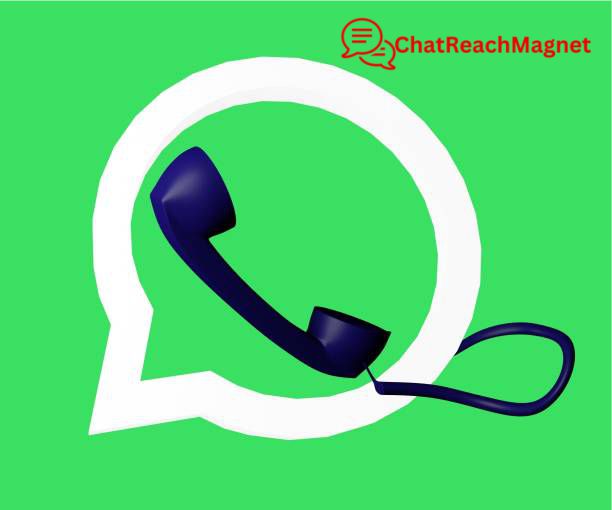How WhatsApp Marketing Fits into an Omnichannel Marketing Strategy
Diversification of marketing strategies is the constant norm by businesses who strive to grow and make an impact in showcasing their products and services, this is done innovatively to engage with customers across multiple platforms. Whats
The days when managing customer interactions on one or two platforms was enough are long gone. Now, customers expect to interact with brands on their preferred channels, whether that’s a website, a mobile app, social media, or even messaging apps like WhatsApp.
To meet these expectations, businesses need a strategy that ensures seamless and consistent communication across all channels. This is where omnichannel marketing comes into play.
One of the most powerful tools for enhancing omnichannel marketing strategies today is WhatsApp marketing. As one of the most widely used messaging platforms in the world, WhatsApp offers businesses a direct and personal way to communicate with their customers.
Using WhatsApp into an omnichannel strategy allows businesses to engage with customers in real time, offering a more personalised and unified customer experience across all touchpoints.
This blog post will explore how WhatsApp marketing fits into an omnichannel strategy and how businesses can leverage its capabilities to improve customer engagement, satisfaction, and loyalty.
What is Omnichannel Marketing?

Omnichannel marketing is simply the practice of providing a unified, consistent, and integrated customer experience across multiple platforms. It is an approach which ensures that whether a customer is communicating with your brand through a website, mobile app, social media, email, or in-store, they receive a seamless experience that maintains the same tone, message, and quality of service. The goal is to create a cohesive brand experience, regardless of the channel a customer uses.
At its core, omnichannel marketing is customer-centric. It puts the customer’s experience at the forefront by connecting all touchpoints into a single, harmonious system. This makes it easier for customers to engage with your brand, as they can switch between channels without losing the context of their interactions.
For example, a customer might discover a product on Instagram, browse your website for more details, and later complete the purchase on a mobile app or in-store. An omnichannel approach ensures that the experience remains connected, with consistent messaging, no matter where the customer engages with the brand.
Why WhatsApp Marketing is Essential for Businesses
WhatsApp is one of the most popular messaging platforms globally, with over two billion active users. It has become an essential tool for businesses that want to reach their customers directly on their mobile devices, which is where most online interactions take place today. The platform offers a unique opportunity for brands to engage with customers in a highly personal and direct manner.
One of the primary reasons why WhatsApp marketing is essential for businesses is its accessibility. Unlike traditional communication methods like email or SMS, WhatsApp is a platform that customers actively use in their day-to-day lives.
Messages on WhatsApp have a significantly higher open rate than emails, and customers are more likely to respond to messages on WhatsApp, making it an effective tool for marketing.
Moreover, WhatsApp allows businesses to share rich media content such as images, videos, documents, and links, making it a versatile platform for sharing promotional offers, product information, and customer service resources.
For businesses looking to stay competitive, integrating WhatsApp into their marketing efforts is not just an option—it’s a necessity.
The Role of WhatsApp in an Omnichannel Strategy

The rise of WhatsApp as a critical communication platform offers businesses a unique opportunity to enhance their omnichannel marketing strategy.
WhatsApp helps connect various customer touch points, providing a seamless experience that aligns with the overarching goal of omnichannel marketing: delivering a consistent, connected, and customer-centric journey.
Here are some ways WhatsApp fits into an omnichannel strategy:
#1. Consistent Communication: WhatsApp allows businesses to maintain consistent messaging across all channels. Whether a customer engages with your brand on social media, website, or through in-person interactions, WhatsApp can be used to deliver personalised messages that align with other channels.
#2. Real-Time Interaction: WhatsApp enables businesses to communicate with customers in real time, making it an ideal tool for providing immediate support, sending time-sensitive promotions, or responding to customer inquiries quickly.
#3. Integration with Other Platforms: WhatsApp can be integrated with CRM systems, social media platforms, and email marketing tools, allowing businesses to streamline their communication and provide a more holistic customer experience.
#4. Personalised Customer Journeys: With WhatsApp, businesses can tailor communications based on customer behaviour and preferences. This allows for more personalised interactions that increase engagement and make customers feel valued.
#5. Seamless Transition Between Channels: WhatsApp enables customers to switch between channels effortlessly. For example, a customer could discover a product on social media and initiate a conversation via WhatsApp, continuing their experience smoothly.
#6. Cost-Effective Customer Support: WhatsApp offers a cost-effective way to provide customer support. It reduces the need for expensive phone support and allows businesses to resolve customer queries efficiently with text, voice, and multimedia.
#7. Enhanced Customer Trust: By using WhatsApp to provide quick responses and real-time engagement, businesses can build trust with their customers. Customers appreciate timely and relevant communication, especially when they need assistance or have inquiries.
#8. Broadcasting and Group Messaging: WhatsApp allows businesses to send updates, promotions, or announcements to multiple customers at once using broadcasting lists or groups. This ensures that important information reaches customers quickly, while still providing the option for personalised follow-ups.
Direct, Personalised Communication with Customers
One of the standout features of WhatsApp marketing is its ability to offer direct, personalised communication with customers. In today’s marketing landscape, customers expect brands to treat them as individuals rather than just another sale. Personalised messaging helps create a deeper connection between the brand and the customer, leading to increased loyalty and engagement.
On WhatsApp, businesses can send one-on-one messages that feel more personal than an email or social media post. For example, if a customer has interacted with your website, you can follow up with personalised recommendations or order updates directly through WhatsApp.
Additionally, the platform allows for multimedia-rich content, which can be used to share product tutorials, exclusive discounts, or even video messages that feel intimate and personal.
The power of personalised communication lies in its ability to build trust with customers. By using WhatsApp to offer tailored messages that align with other touchpoints, businesses can strengthen relationships with their audience and enhance the overall customer experience.
Customer Support and WhatsApp: Enhancing Real-Time Engagement
In an omnichannel strategy, customer support plays a critical role in maintaining a seamless and positive experience. Customers expect fast and efficient responses to their questions, and WhatsApp is particularly effective in this regard.
The platform allows businesses to provide real-time customer support, answering questions, resolving issues, and offering guidance in a way that feels immediate and personal.
For instance, if a customer has a question about a product or service, they can simply send a message through WhatsApp and receive an instant response, rather than waiting on hold or for an email reply. This level of convenience enhances the customer experience and ensures that support is available on the platform customers use most frequently.
WhatsApp also supports automated replies and chatbots, which can help businesses manage high volumes of inquiries efficiently. Chatbots can be used to answer common customer queries, while more complex issues can be escalated to human agents, ensuring a quick and smooth resolution.
Making use of WhatsApp into your customer support strategy, you can provide immediate assistance to customers while maintaining the personal touch that is key to an omnichannel approach.
Integration of WhatsApp with Other Marketing Channels
For an omnichannel strategy to be successful, all channels must work together harmoniously. WhatsApp’s ability to integrate with other platforms makes it an ideal tool for businesses looking to create a unified customer experience.
One of the most important integrations for WhatsApp is with Customer Relationship Management (CRM) systems.
By syncing WhatsApp conversations with your CRM, you can ensure that all customer interactions are stored in one place, making it easier to segment audiences, track customer journeys, and personalise future communications. For example, if a customer inquires about a product on WhatsApp, this data can be used to send relevant follow-up emails or retargeting ads on social media.
In addition to CRM integration, WhatsApp can also be linked with email marketing tools and social media platforms. This allows businesses to create cohesive campaigns that span multiple channels. For example, a customer who receives a promotional email can be directed to WhatsApp for more personalised communication or support.
Similarly, WhatsApp’s Click-to-Chat feature can be embedded into your website or social media pages, allowing customers to start a conversation with your brand instantly.
The ability to integrate WhatsApp with other platforms ensures that customers enjoy a consistent and streamlined experience, no matter how they engage with your brand.
WhatsApp Business API: Scaling Customer Engagement

For businesses that are growing or have a large customer base, managing customer interactions on WhatsApp manually can become overwhelming. The WhatsApp Business API is designed to help medium and large enterprises scale their communications while maintaining a personal touch.
The WhatsApp Business API allows businesses to automate and streamline their customer interactions. For example, businesses can use the API to send automated replies, order updates, and shipping notifications without the need for manual intervention. This not only saves time but also ensures that customers receive timely updates that enhance their experience.
Additionally, the WhatsApp Business API can be integrated with chatbots, allowing businesses to provide 24/7 support for common customer inquiries. For more complex questions, the conversation can be escalated to a human agent, ensuring that customers always receive the help they need.
The API also supports rich media content, such as product catalogs, images, and videos, allowing businesses to create engaging campaigns that drive customer interaction. For example, a business can send a product recommendation via WhatsApp after a customer has browsed their website, creating a seamless journey from awareness to purchase.
Using the WhatsApp Business API, businesses can scale their communications without sacrificing the personal touch that is crucial to omnichannel marketing.
Boosting Customer Retention with WhatsApp Engagement
Customer retention is an essential metric for any business, and WhatsApp can play a key role in boosting retention rates when integrated into an omnichannel strategy.
One of the most effective ways to retain customers is by maintaining ongoing, relevant engagement after their first purchase or interaction. WhatsApp provides an ideal platform for this kind of continuous engagement.
Through WhatsApp, businesses can send post-purchase follow-ups, exclusive promotions, and loyalty rewards that keep customers engaged and encourage repeat purchases.
For example, after a customer completes a purchase, you can send a thank-you message, along with a special discount code for their next order. These small but meaningful engagements help nurture the customer relationship, making them more likely to return.
WhatsApp can also be used for proactive engagement. Businesses can send reminders about abandoned shopping carts, encourage customers to leave reviews, or notify them about upcoming sales.
These touchpoints not only increase customer engagement but also show that the business is invested in maintaining an ongoing relationship with the customer.
Integrating WhatsApp into an omnichannel retention strategy, businesses can ensure that customers receive timely and relevant messages that keep them coming back for more.
Best Practices for Integrating WhatsApp into Your Omnichannel Strategy
To successfully integrate WhatsApp into your omnichannel marketing strategy, there are a few best practices to keep in mind:
Consistency is Key: Ensure that your messaging on WhatsApp aligns with your communication on other channels. This includes using the same tone, language, and branding to provide a cohesive experience.
Personalisation Matters: Take advantage of WhatsApp’s direct messaging capabilities to personalise your communications. Tailor your messages based on customer behaviour and preferences to create a more engaging experience.
Leverage Automation: Use the WhatsApp Business API to automate responses to common queries and provide 24/7 support. Automation can help you manage high volumes of inquiries while maintaining quick response times.
Integrate with Other Platforms: Sync WhatsApp with your CRM, email marketing tools, and social media platforms to ensure that all customer data is connected. This allows you to provide a seamless experience across all channels.
Measure and Optimise: Track your WhatsApp engagement metrics, such as response times, open rates, and customer satisfaction, to understand what’s working and where improvements can be made.
Conclusion
Incorporating WhatsApp marketing into an omnichannel strategy is a powerful way for businesses to connect with customers in a personalised, direct, and consistent manner. WhatsApp offers real-time engagement, personalised messaging, and seamless integration with other channels, making it an essential tool for any brand looking to enhance its customer experience.
By leveraging WhatsApp’s capabilities and following best practices for integration, businesses can create a unified marketing strategy that not only improves customer engagement but also boosts retention and loyalty. Whether through personalised messages, real-time support, or large-scale automation with the WhatsApp Business API, WhatsApp has proven itself to be a valuable asset in any omnichannel marketing toolkit.
As businesses continue to evolve in the digital age, those that embrace WhatsApp marketing as part of their omnichannel strategy will be best positioned to meet customer expectations and stand out in an increasingly competitive marketplace.

